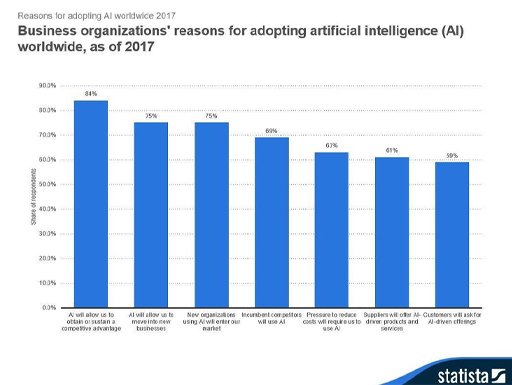4.1 Unpacking the argument
So, what is wrong with Kaczynski’s argument? After all, it seems to resonate with the current Zeitgeist, witness the success of Yuval Noah Harari’s book Homo Deus with both the general public and Silicon Valley (Bowles, 2018).
Harari makes a very similar prediction:
The most important question in the twenty-first century economics may well be what to do with all the superfluous people? What will conscious humans do once we have highly intelligent non-conscious algorithms that can do almost everything better?
But will machines do almost everything better? As you have seen, even with simple object recognition, there are significant gaps between human and machine capabilities. Given the long history of attempts to mechanise thought, the idea that we are now very close may prove illusory, again. The narrative of the inevitable rise of the infallible perfect machines may also hide from view more imminent threats.
For instance, you may want to ask whether businesses are adopting AI because it does things better. It turns out that this isn’t at the top of the agenda of most businesses. They are focusing on other more practical reasons for adopting AI (Figure 16).
Recently, many news stories have highlighted that the major search and social media companies are (surprisingly?) driven by business considerations. They generate revenue by selling advertising opportunities. It is in the interest of these companies to keep their users glued to their platforms, since this maximises the amount of advertising they can be exposed to. AI algorithms play an important role in this. They learn how to best keep users engaged, sometimes with disastrous side effects. (For example, teenagers with suicidal thoughts may be directed to videos or web pages that encourage and reinforce their suicidal tendencies.) After the initial rose-tinted idealist view of these companies, it now seems to be taking a generally sceptical outlook.
Apart from optimism about what machines can do, there is also a strand of thought that plays down human capabilities and unique attributes such as human consciousness. Harari (2016), in the footsteps of John Gray (e.g. Gray, 2002), claims that science has shown that consciousness and free will, which set humans apart from machines, are mere illusions. But also on this front the argument is hardly settled. Neuroscientists such as Raymond Tallis (Tallis, 2011) and Kenan Malik (Malik, 2000) have argued at length that such conclusions are unwarranted, given the current state of knowledge.

